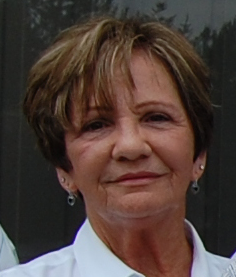What a tap could mean for business growth
Published 11:23 am Thursday, November 17, 2016
County access to a natural gas tap from a lateral line off the proposed Atlantic Coast Pipeline (ACP) could mean guaranteed business and industrial growth in Buckingham.
“Currently, over 90 percent of all industrial projects that we are seeing require natural gas,” said Jeffrey G. Reed, executive director of Virginia’s Growth Alliance (VGA), of which Buckingham is a member. “If you think of the pipeline as a highway, the tap is the exit ramp and without the ramp, the opportunity for development and the ability to access the ‘highway’ is limited.”

Jeffrey G. Reed
Kyanite Mining Corp. is set to enter into a memorandum of understanding with Columbia Gas and ACP to acquire a tap, metering and a decompression station and construction of a lateral pipeline off the ACP that will provide natural gas to the company. That, in turn, could lead to a set of memorandums between the county and Kyanite and the county, Kyanite, ACP and Columbia gas which would provide the county with access to the lateral line and 200 acres of property along it.
The VGA, which serves 10 counties and one city, is the largest geographic economic development-marketing region in Virginia at approximately 4,400 square miles.
“The vast majority of that area is not served by natural gas. The pipeline is the first step to eliminating that barrier to development; the second is the tap,” Reed said. “Buckingham is making an important, forward-thinking investment. It is critical for future development and is vital to a number of our existing industries.”

Barry DuVall
Kyanite Mining Corp. is the fourth largest employer in Buckingham — only behind two prisons and the county’s school system. Access to natural gas could lead to new growth and jobs, according to Kyanite President and General Manager Guy Dixon.
“I think that over the course of the next few years or decade or more, that really could be a hook that could bring some industry or industries to Buckingham that wouldn’t otherwise be here,” Dixon said.
He said Kyanite was operating under the assumption that if natural gas allows the firm “to produce our product cheaper and cleaner and more consistently, which we believe it will, that will allow us … to sell more of our product at a better price and our business grows. The need for more employees is something that grows right along with it. And so, we’re kind of banking on … a more efficient cost structure allowing us to grow our business more quickly than we would otherwise, which, in the past, has always meant more employment opportunities.”

Rebecca S. Carter
Virginia Chamber of Commerce Executive Director Barry DuVal said the project is “critically important” to Virginia’s energy and economic future.
“The MOUs in Buckingham represent an encouraging step towards tapping into the clean, affordable, safe natural gas energy that will be provided through the Atlantic Coast Pipeline,” he said.
DuVal said Buckingham’s having a spur to a pipeline “helps attract new businesses and helps existing businesses grow.”
County Administrator Rebecca S. Carter said the county is trying to get as much benefit as possible from the proposed ACP.
“With Kyanite’s large gas consumption need, and their negotiations with Columbia Gas, the county (gains) the opportunity to see the enhancement of operations of one of our largest tax paying and employment corporations, but also provides the county the unique opportunity to market property with one of the most pursued utilities,” Carter said, referring to natural gas.

Guy Dixon
Carter said given the nation’s economics, “it is advantageous to our country that a United States corporation is financially able to aid in the production and provision of energy needs without dependence on other countries and keeping this tax paying corporation in our country, state and localities.”
To those who feel they will be “negatively impacted,” Carter said, “and some will be, it is my hope that, at the end of the day, they may find some consolation that their sacrifice is not just benefiting the ACP or Dominion but many natural gas users in the United States, such as medical care facilities and many other businesses that provide essential needs to the people.”





